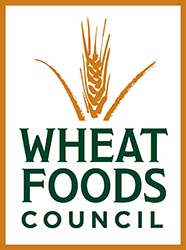Wheat Foods Council 2021 – 2026 Strategic Plan
The Wheat Foods Council (WFC) strategic plan identifies target audiences and establishes messaging priorities developed through an extensive dialog with the wheat industry including producers, millers, bakers and others in the wheat value chain.
As we developed this strategic plan our guidelines were:
- Focus on ideas appropriate for the WFC to undertake
- Seek the opportunities with the greatest ROI and upside potential that WFC could advance
- Identify the industry’s biggest problems for which WFC could provide solutions
Background
Mission Statement: The WFC is an industry-wide partnership dedicated to increasing domestic wheat foods consumption through nutrition information, research, education and promotional programs.
Vision: The WFC seeks to deliver a program of wheat foods promotion while correcting misinformation where appropriate—play offense as much as possible; play defense when necessary.
WFC follows an influencer strategy targeting our programs to influencers who will multiply our messages to the audiences they communicate with. This strategy is highly appropriate due to the WFC’s limited budget and the effectiveness of message multiplication by selecting the right influencer targets and providing them with compelling information and programs.
WFC Strategies
Educate personal trainers about wheat foods.
- Personal trainers are an influencer category of particular interest due to their strong relationship with consumers as a go-to source for health, weight loss/weight management and nutrition information.
- Personal trainers’ advice is extended by their clients to reach millions of consumers each month.
- WFC has made significant inroads to educating personal trainers, continuing to expand the knowledge of wheat’s nutritional benefits to this important audience is a priority.
Improve the image of enriched wheat foods.
- This strategy will be accomplished by further educating key influencers about the significant health contributions of enriched wheat products, demystifying the milling process and taking a closer look at the science around enrichment.
- Restaurant menu development chefs remain a priority influencer target audience as they reach millions of consumers and set culinary trends.
- Success in the implementation of this strategy has been achieved by collaborating with the Culinary Institute of America for in-person and online chef education programs. It will continue to be a priority of this strategic plan.
Improve the image of “modern wheat” and wheat breeding.
- Provide our target audiences with up-to-date wheat facts and debunk misinformation.
- Initiate proactive measures to get in front of anticipated issues whenever possible.
Continue educating Registered Dietitians about wheat and wheat foods.
- WFC has developed a strong relationship with RDs over several decades.
- Utilizing this relationship to provide RDs with the most current nutrition updates and information from our strategies and messaging will remain a priority.
Conduct business and consumer research to discover information of importance to the industry.
- Learn how a changing business environment and consumer trends shifts will impact the wheat foods value chain.
- Share the information gleaned from the research with the industry.
- Use the learnings acquired by the research in WFC messaging and public relations initiatives.
How WFC Will Implement This Strategic Plan to Reach the Next Level:
- WFC adapted to the changing environment in 2020 to effectively reach personal trainers and chefs online, we must continue to adapt to reach our target audiences successfully in the future.
- Continue to utilize experts with outstanding credentials and credibility to present WFC’s messages and information.
- Expand partnerships to extend WFC’s reach to new consumer audiences and stretch budgets.
- Develop messages to highlight wheat foods’ fit in consumers’ heightened interest in foods that provide functional, health, wellness and healthy aging benefits.
- Coronavirus has changed how people look at food; they want more control over their food choices and are seeking comfort foods. In particular, in-home flour use and baking have increased during the pandemic. WFC will emphasize and enhance these trends to assist in sustaining them long term.
- Communicate wheat’s sustainability and low carbon footprint as compared to other foods.
- Highlight wheat’s simple from nature, minimally processed profile and wheat foods’ strong nutritional benefits as consumers seek more plant-based food choices.
